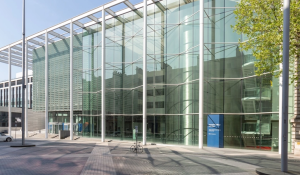It's important to recognise the context: All the UK schools face a challenging environment in Europe and the UK, and that continues. Students, and especially non-EU students, find it harder than they did (and that's also the situation in the US).
That makes it more remarkable that MBS is one of the few UK schools to have been able to hold its place in the rankings (and even rose this year - Forbes ranked it 2nd outside the US http://www.forbes.com/2009/08/03/best-business-schools-09-leadership-careers-nonus2yr_slide_3.html).
It's a very stable programme and school, but there are a few changes that seemed notable:
- MBS is now placing students into the top strategy consulting firms. BCG is one of the top recruiters, according to Forbes, and its recently been able to place some students into internships with other top strategy firms.
- The MBA is structured over six terms, each with a project (the summer personal project can be swapped for an internship, dissertation or electives). At the end of the final term the students come back to present the results of their international business projects. These projects seem to be growing in popularity with employers, and there's now a substantial surplus of projects.
- There's now a major integrative week after that, where the students draw together what they have learnt in the projects, and to help them refocus on their goals.
- There's a 60 million pound fundraising programme on to expand the school which (like London Business School) is struggling to squeeze both degree programmes and the growing executive education business into the main campus.




